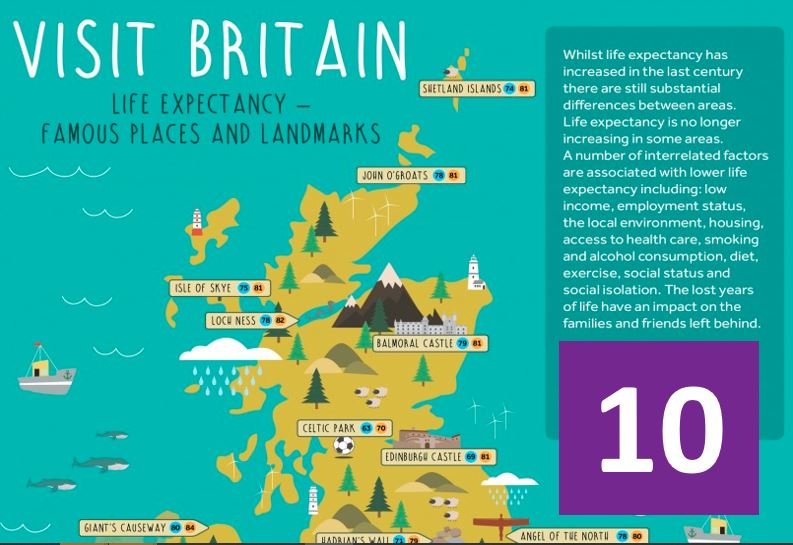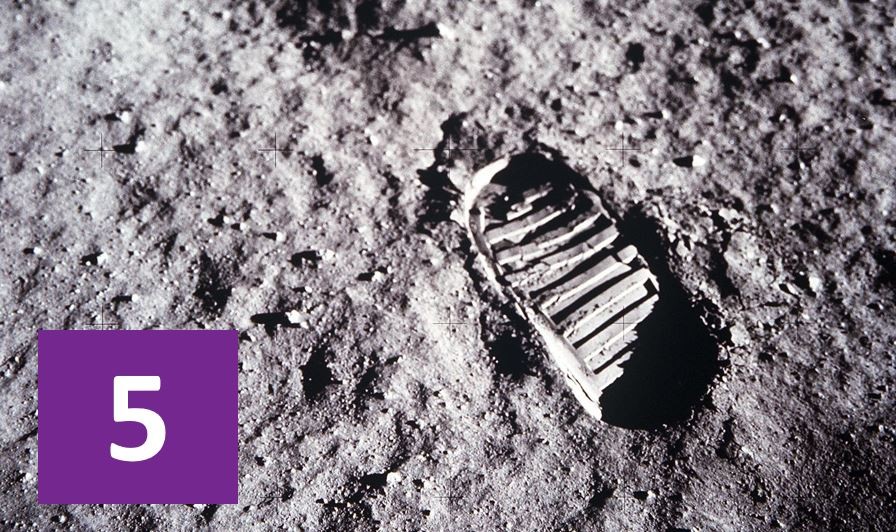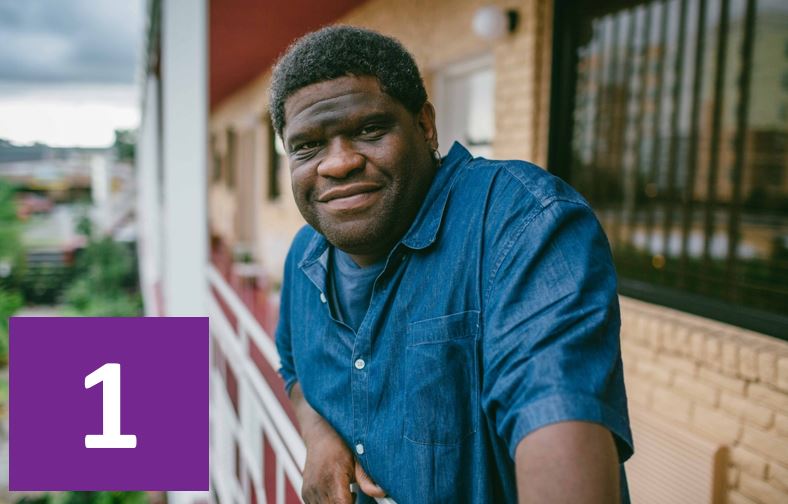2019's top news from the Faculty of Humanities
2019 produced many big news stories in The University of Manchester's Faculty of Humanities, from fascinating new research to fantastic new appointments. Here, we run down the top ten most popular newsroom posts of the year in reverse order.
Visit Britain – stark differences in UK life expectancy revealed
Researchers from the faculty highlighted the stark inequalities in life expectancy across the UK by producing a map of famous places and landmarks around the country. Drs Kingsley Purdam and Harry Taylor created the map to demonstrate how life expectancy can vary by more than 25 years between areas - for example, life expectancy is 63 for men and 70 for women around Celtic Park in Glasgow, around Blackpool Tower it is 70 years for men and 79 for women and in London’s Knightsbridge, it is 89 for men and 92 for women. Despite long-term increases in life expectancy in the UK since Victorian times, it is still lower than in many other countries with comparable levels of economic development.
“The famous places and landmarks life expectancy map is designed to raise public and policy maker awareness of the inequalities in life expectancy in the UK,” said Dr Kingsley Purdam. “The deprivation level of an area is strongly linked with premature mortality, which shows that it is vital for the Government to recognise and address the ineqaulities in health outcomes."
Forgotten maps of Manchester’s Victorian slums restored and available to view
A new project repaired, photographed and shared online forgotten maps of Manchester’s slums, which had been overlooked for the last 130 years. The maps from the early 1880s provided information on the age of dwellings and the use of other buildings, and helped to visualise the dense physical layout of some of the city’s most notorious slums such as Red Bank, which was described by Friedrich Engels as “utterly uninhabitable” when he wrote about Manchester in the 1840s. The maps had been overlooked by historians, urban geographers and other scholars for 130 years, as they were bound into reports by the city’s Medical Officer of Health.
"The maps are a unique sanitary survey for Manchester, which will be a valuable resource for researchers to better understand the social conditions in the city in the late 1800s," said Geographer Dr Martin Dodge, who worked with experts from the University of Manchester Library to carefully conserve, photograph and digitise the maps.
Broad regional accents are a barrier to social mobility
Many people aspire to improve their lives through gaining promotion at work, new qualifications or starting a new career. However, research by a Manchester academic found that broad regional accents can be a barrier to social mobility, as they are less favoured by some people. Although we are more likely than ever to hear a range of voices on British television - with even BBC News having presenters from Newcastle and other cities with notable regional accents, the research found that some people have issues with regional varieties deemed to be ‘broad’ – as opposed to ‘general’ or ‘neutral’ varieties of the same accent.
"Even today, broad accents are less favoured,” said researcher Dr. Alex Baratta. “Many teachers are told - or feel a need - to modify their accents in order to be perceived more professionally. In one example, a teacher from Bristol modified his accent to avoid being perceived as a ‘yokel who lives on a farm’!”
Ten rules of email that will reduce your stress levels
Email and smart phones can be stressful. Academics are calling this constant work connection “technostress”. Consequently, many European countries are now offering employees the “right to disconnect”.
Ricardo Twumasi, Cary Cooper and Lina Siegl teamed up to write this piece, in which they outlined the ten golden rules to handle work emails effectively in the modern day without getting stressed - they included getting the subject line right, not emailing out of office hours, having a separate work phone and avoiding late-night screen time.
Four ways your name can affect your job prospects
Ricardo Twumasi makes another appearance in our countdown, this time writing about the four ways in which your name can have a huge influence on your prospects in life - ethnicity, alphabetical position, age and gender. Much of this is due to bias, stereotyping and other rules of thumb that people employ when making judgements about others.
"In hiring, this can be a huge problem," he said. "While there are nine characteristics in UK legislation that are protected from discrimination, it is difficult for humans (or even artificial intelligence) to make unbiased judgements. The characteristics that are protected from discrimination include things like your gender, whether or not you have a disability, your race, religion and sexual orientation. But even if you don’t disclose these features on your CV, our names can suggest much about us."
How moon landing conspiracies began
Professor of American Studies Peter Knight wrote this fascinating piece, in which he outlines the history of conspiracy theories about the 1969 moon landing, and discusses why they still persist today. "The basic template of the conspiracy theory is that NASA couldn’t manage to safely land a man on the moon by the end of the 1960s as President John F Kennedy had promised, so it only sent astronauts into Earth orbit", he said. "Conspiracy theorists then argue that NASA staged the moon landings in a film studio and that there are tell-tale signs on the footage and the photos that give the game away. They claim that NASA has covered up the elaborate hoax ever since."
"Moon landing sceptics point to supposed clues such as photos that appear to show the astronauts in front of cross hairs that were etched on the camera glass, or a mysterious letter C visible on a moon rock. These and many other seeming anomalies have been debunked, but moon landing conspiracy theories have persisted in the popular imagination."
Working mothers are up to 40% more stressed, research finds
This story highlighted research by Professor Tarani Chandola, which found that biomarkers for chronic stress are 40% higher in women bringing up two children while working full-time. The research also found that working from home and flexitime have no effect on their level of chronic stress – only putting in fewer hours at work helps.
"Flexible work practices are meant to enable employees to achieve a more satisfactory work-life balance which should reduce work-family conflict," said Professor Chandola. "The use of such reduced hours flexible work arrangements appeared to moderate some of the association of family and work stressors - but there was little evidence that flexplace or flextime working arrangements were associated with lower chronic stress responses."
David Olusoga OBE becomes a professor at The University of Manchester
Historian, broadcaster and film-maker David Olusoga joined The University of Manchester as a Professor of Public History in 2019, and the story about his arrival was our third most popular news item of the year. David, who presented the BBC's landmark series Civilisations in 2018 alongside Simon Schama and Mary Beard, is one of the UK’s foremost historians whose main subject areas are empire, race and slavery. He was made an OBE in the 2019 New Year’s Honours List.
"For me, history has always been a public activity - it’s about reaching out to as many people as possible," he said. "I‘ve spent my career working with institutions similarly committed to making history inclusive, expansive and diverse. Joining The University of Manchester is to continue in that tradition."
Racism is still a huge problem in UK workplaces, research finds
Our most popular research story was an alarming report which found that the majority of ethnic minority workers have experienced racial harassment at work in the last five years, and have been subjected to unfair treatment by their employer because of their race. Stephen Ashe surveyed over 5000 people, who answered questions relating to various aspects of their everyday working lives. The responses were shocking, with over 70% of ethnic minority workers saying that they have experienced racial harassment at work in the last five years, and around 60% saying that they have been subjected to unfair treatment by their employer because of their race. Almost half reported that racism had negatively impacted on their ability to do their job, and almost half have been subject to ‘verbal abuse and racist jokes’.
"Racism remains a widespread and endemic feature of everyday working life in Britain, fifty years after the introduction of the Race Relations Amendment Act," said Stephen. "The time has come to abandon the laissez-faire approach adopted by the current Government and its predecessors - workplace racism and racial inequality in the labour market will persist as long as successive governments continue to abide by voluntary, non-interventionist, non-regulatory orthodoxy."
Gary Younge becomes a professor at The University of Manchester
And finally, our most popular story of the year was the announcement that award-winning author, broadcaster and columnist Gary Younge has joined The University of Manchester, after being appointed as a Professor of Sociology in the School of Social Sciences. After several years of reporting from all over Europe, Africa, the US and the Caribbean - including a stint at The Washington Post - Gary was appointed The Guardian’s US correspondent in 2003, before becoming their editor-at-large in 2015. He has won several prizes for his journalism, including the David Nyhan Prize for political journalism from Harvard’s Shorenstein Center, and he was named as 2018’s Feature Writer of the Year by both Amnesty UK and the Society of Editors for his series on knife crime. His five books have also received considerable critical acclaim.
"Journalism, for me, has always been a process of enquiry and sharing whatever insights I've gathered in an accessible and informative way - that's precisely what I hope to achieve as a professor at The University of Manchester, and why I'm excited to be joining the sociology department," Gary said. "I won't be giving up journalism altogether. But teaching and researching at Manchester will provide a welcome shift of emphasis, even as I continue in that tradition."











